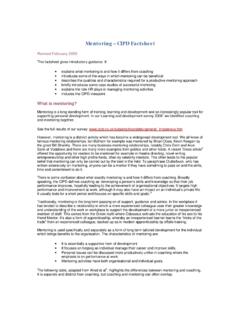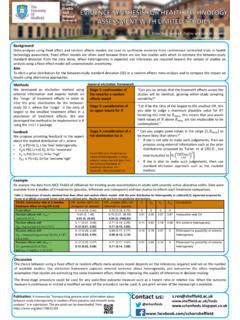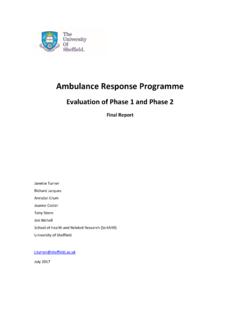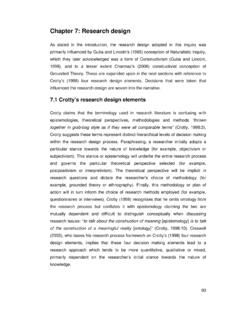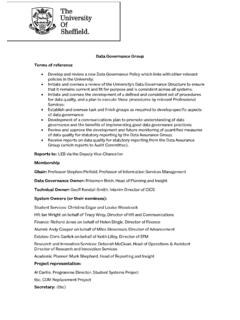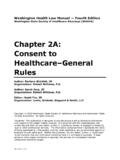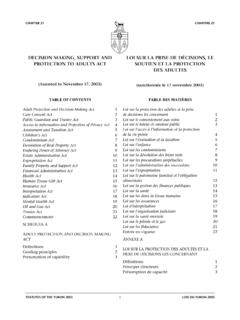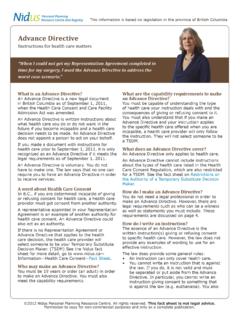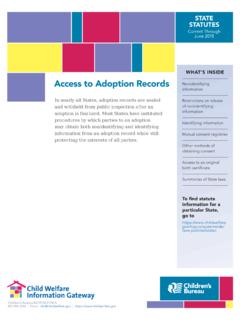Transcription of Ethical considerations in research with children …
1 Specialist research Ethics Guidance Paper Ethical considerations IN research with children AND YOUNG PEOPLE Ethical considerations in research with children and young people occur at all stages of the research process. They should be considered as an ongoing and reflexive part of the research process throughout the life of a research project and not just as the first hurdle to be overcome. The following paragraphs provide details about the kinds of Ethical issues that can arise in both qualitative and quantitative research with children and young people. These are not set out as prescriptive rules, however.
2 Rather, the issues are raised to encourage the kind of researcher reflexivity that is one cornerstone of the University of Sheffield s approach to research ethics. While the right answer in one situation may not be appropriate in another, the same questions generally are. Access On commencing research , the first question to ask is: who are the gatekeepers for the research project? The school or childcare facility in question? Parents? Health and social care authorities? In many countries, access to children and young people is controlled by a range of individual and institutional gate-keepers.
3 For example, researchers may need to obtain official government clearance, such as criminal records checks in response to child protection concerns, before research can commence. These legal/official requirements vary between countries. In addition, however, schools, social care and health authorities may place requirements on researchers in relation to the nature and conduct of their research that raise other Ethical issues. For example, schools may insist that research is not carried out during lesson times and limit researchers access to children to playtimes.
4 Researchers need to consider the extent to which using children s free time at school, when they may want to play or be with their friends, raises Ethical issues. In some societies it is not just parents and local authorities who must be approached for clearance, but also community elders such as chiefs and other traditional authorities. In some cases parents and children will hesitate to participate in the research if such elders in their communities or families refuse their consent . Therefore, in these contexts it may be necessary to talk more broadly than parental consent and researchers will need to think about how to work with such authorities.
5 Access to children and young people has also often to be negotiated with parents and families. Researchers need to consider the Ethical issues that arise in relation to access both being granted and denied. If parents give their approval for research to be carried out with their children , researchers need to ascertain whether the children themselves have been consulted about their involvement. Similarly, if a few parents do not give permission for their children to participate in research being carried out in a classroom context, when the majority of children are participating, researchers need to consider how they will manage this sensitive situation: such children may have wished to participate and may, consequently, feel excluded.
6 While researchers will need to be guided by the requirements placed upon them by the local context with regard to accessing children ( any conditions set out by the head teacher of a school), it is of primary importance that, where possible, children themselves have the right to decide about their participation in research . It may be therefore that the best strategy for accessing children is to send an opt-out letter home to parents/guardians ( parents/ guardians only reply if they wish their child not to participate) rather than an opt-in letter, with care taken to ensure that such letters are translated, where appropriate.
7 This approach means that the decision about whether to participate is more likely to be made by children themselves. Negotiating consent with children and young people Carrying out any research with children and young people necessitates obtaining children s and young people s informed consent . However the nature and meaning of informed consent in respect of children , and the ways in which this can be achieved, needs to be considered carefully. For example, if children are asked whether they wish to participate in research taking place at school, researchers need to consider the extent to which children may feel obliged to give consent , in a context structured by relations of authority between the children and adults in which they may often feel disenfranchised.
8 In addition, in any context, researchers need to consider how the traditional authority relations between adults and children might be mitigated, so that children s consent can be given freely. This point is particularly pertinent when working with research assistants/translators who may not be as familiar with the principles of childhood research as the researcher and thus may reinforce traditional adult-child relations. Providing such assistants with training over a period of time before the research begins may help to address the problem somewhat. Given such difficulties, consent should be seen as an ongoing process and as something that is renegotiated verbally at each stage of the research .
9 This enables children to withdraw from the research at any time should they wish to do so. Since children are often less familiar with what research entails they may initially wish to participate but later feel less keen as they get to know what is involved. Consideration needs to be given, therefore, to ways in which children can be made to feel comfortable with ending their involvement in the research should they choose to do so. In research with toddlers and babies this becomes especially important since obtaining their informed consent may not be possible.
10 Researchers need to consider what non-verbal signs and cues from very young children might indicate their enthusiasm or reluctance to be involved. While obtaining verbal consent is often sufficient, and perhaps preferable in qualitative research , researchers need to consider when it might be appropriate or necessary to also obtain children s written consent . Sometimes this may be a formal requirement set out by gate-keepers. At other times when photographs of children are to be taken as part of the research process for example obtaining written consent from both children and their parents may be advisable in the light of concerns about child protection and privacy issues.

